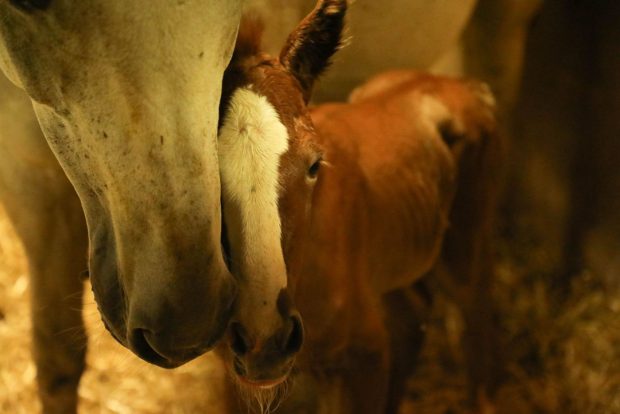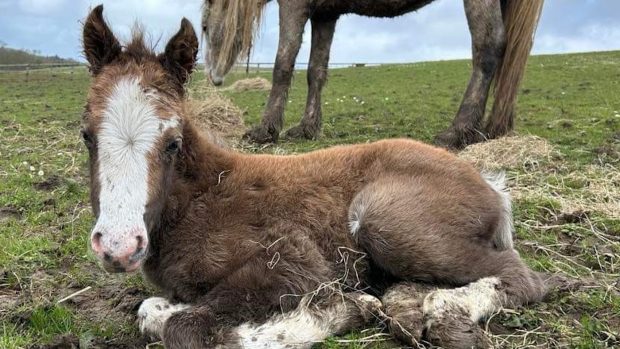Worms represent a serious danger to foals, and they are at risk as soon as they are born. The mare can pass parasites directly to her offspring through her milk and droppings. The foal can also become infected by larvae penetrating the skin or by ingestion from the pasture.
Most dangerous parasites
Threadworms: These are very small and live in the small intestine of the foal. They are transmitted in the form of larvae through the mare’s milk, and damage the intestinal lining causing diarrhoea, loss of appetite and dullness. Foals usually develop a natural immunity to this worm by about 6 months.
Large roundworms: A major cause of ill thrift in foals, occasionally causing a fatal blockage of the intestine. As the worms migrate through the lungs to the intestine they can cause coughing and nasal discharge. Adult worms can also cause stunted growth. Foals develop their immunity to these worms by about 18 months.
Large redworms (strongyles): Although these worms are no longer common, they still potentially very dangerous. The larvae are migrant, moving in and out of the artery wall causing severe damage that encourages formation of blood clots. They can also cause diarrhoea and anorexia, resulting in weight loss and dehydration as well as colic.
Worming your foal
Foals are particularly vulnerable to the effects of worms and need a special worming regime.
- Foals should be first treated for worms at around six weeks of age
- This should be continued every four to eight weeks, depending on the type of wormer:
- Ivermectin-based wormers such as Eqvalan should be used every eight weeks. If large roundworms are present then every six weeks
- Pyrantel is recommended every four weeks
- Fenbendazole should be used every four to six weeks, but only where there are susceptible strains of small redworms
- Moxidectin should not be used in foals under four months old.
- From around 18 months, foals should be wormed according to the recommendations for adult horses.
Brood mares should be wormed regularly to avoid large and small redworms, pinworms, bot fly and tapeworms, which can cause colic and other problems. Regular worming will also avoid diarrhoea, weight loss and dehydration as a result of a worm infestation, which could affect the foal’s development.
Worming your broodmare
Mares and foals are constantly together, especially during the first few months, so it is important that they are treated at the same time.
- Mares should be routinely wormed throughout pregnancy
- Mares and foals should be turned out of pasture that has not been grazed during the previous year to prevent infestation of large roundworms, whose eggs can survive long periods
- It is essential that the wormer used is suitable for both mares and young foals



